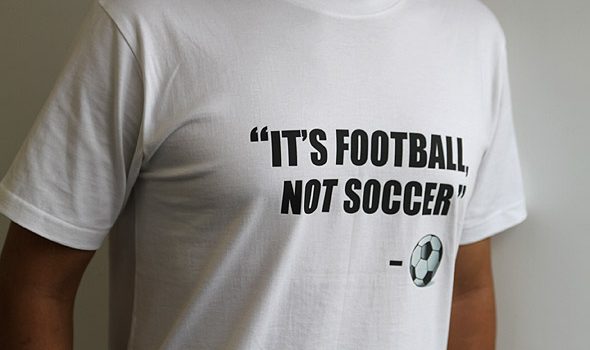Few differences between British and American English are as divisive as the divide between the terms “soccer” and “football.”
Most Americans use the word soccer to refer to what the British call football, while what most Americans call football is referred to by the British as American football.
The story behind the words soccer and football isn’t one of pure Trans-Atlantic rivalry, however, and British dislike of the word soccer has its roots in the UK’s rigid class system.
Biggest difference
The class system is one of the biggest cultural differences between the UK and the USA, and it plays a similarly divisive role in British society to the role played by race in America.
The British class system isn’t quite as rigid as India’s unchanging caste system, and some social mobility is possible, but the class someone is born into is usually considered a huge part of a British person’s identity.
Whereas the class someone belongs to in America is almost entirely dependent on the size of their bank balance, class in Britain runs much deeper.
A lottery winner or Premier League footballer who maintains their working class accent and behavior might still be considered part of the working class in Britain, despite their elevated earnings.
Similarly, an upper-class family may fall on hard times and see a drastic reduction in their fortunes, but as long as they retain a posh accent and mannerisms, they will still be considered as belonging to the class they were born into.
The codification
Football, or soccer, was first codified as a sport in the late 19th century.
Similar games had been played in Britain for centuries, most involving carrying an animal bladder from one town to another, avoiding the opposing townsfolk attempting to take the bladder away from you.
A version of the game that is much more similar to that enjoyed around the world today then began to be played by Britain’s new urban working class during the Industrial Revolution.
It quickly grew in popularity and spread to rural areas of the country, but remained an almost exclusively working class sport.
One of the fastest ways to determine an individual’s class in Britain is to ask them what type of school they went to.
Free schools provided by the government are referred to as state schools, while, in a confusing reversal of the American school system, fee-paying schools are referred to as public schools.
Different social classes in Britain use distinct dialects and often employ different vocabulary.
One habit of upper-class public school pupils in the 19th century was to shorten the names of sports and hobbies, with rugby becoming “rugger.”
The codified version of the popular urban working class game of football was commonly referred to as Association Rules Football at this time, and public school pupils shortened this to “soccer.”
Insulting, but sometimes useful
As many of the British upper-class considered football beneath them and a peasant’s game, soccer was often used as an insulting term.
The class system is still alive and divisive in Britain today, but it is less immutable and absolute today than it was in previous decades.
Until the 1970s, working class accents were considered too vulgar to be broadcast on television, so working class individuals typically adopted ridiculous attempts at upper-class accents whenever they were interviewed on television.
This applied to football players, who were mainly drawn from working class backgrounds.
Fans would occasionally react with disgust and accusations of being a class traitor whenever a footballer from a working class background used the term “soccer” on TV.
Soccer proved to be a useful term in countries with other sports that could potentially be referred to as football, such as Ireland with Gaelic football, Australia with Aussie Rules football, and America with American football.
Antipathy
British antipathy for the phrase soccer continues, even though the word’s roots in upper-class England are fading from memory.
Today, it is a flashpoint for cultural differences between Britain and America. Historically, it has been a flashpoint for differences between Britain’s social classes.
Written by Tom Wilkins
Like O-Posts on Facebook
You can also follow O-Posts on Twitter @OPosts

